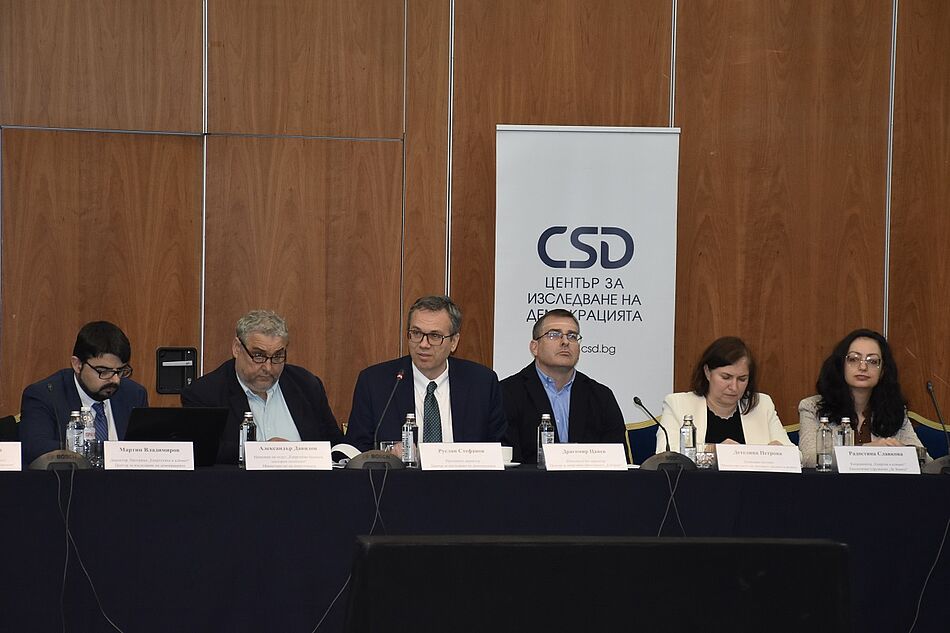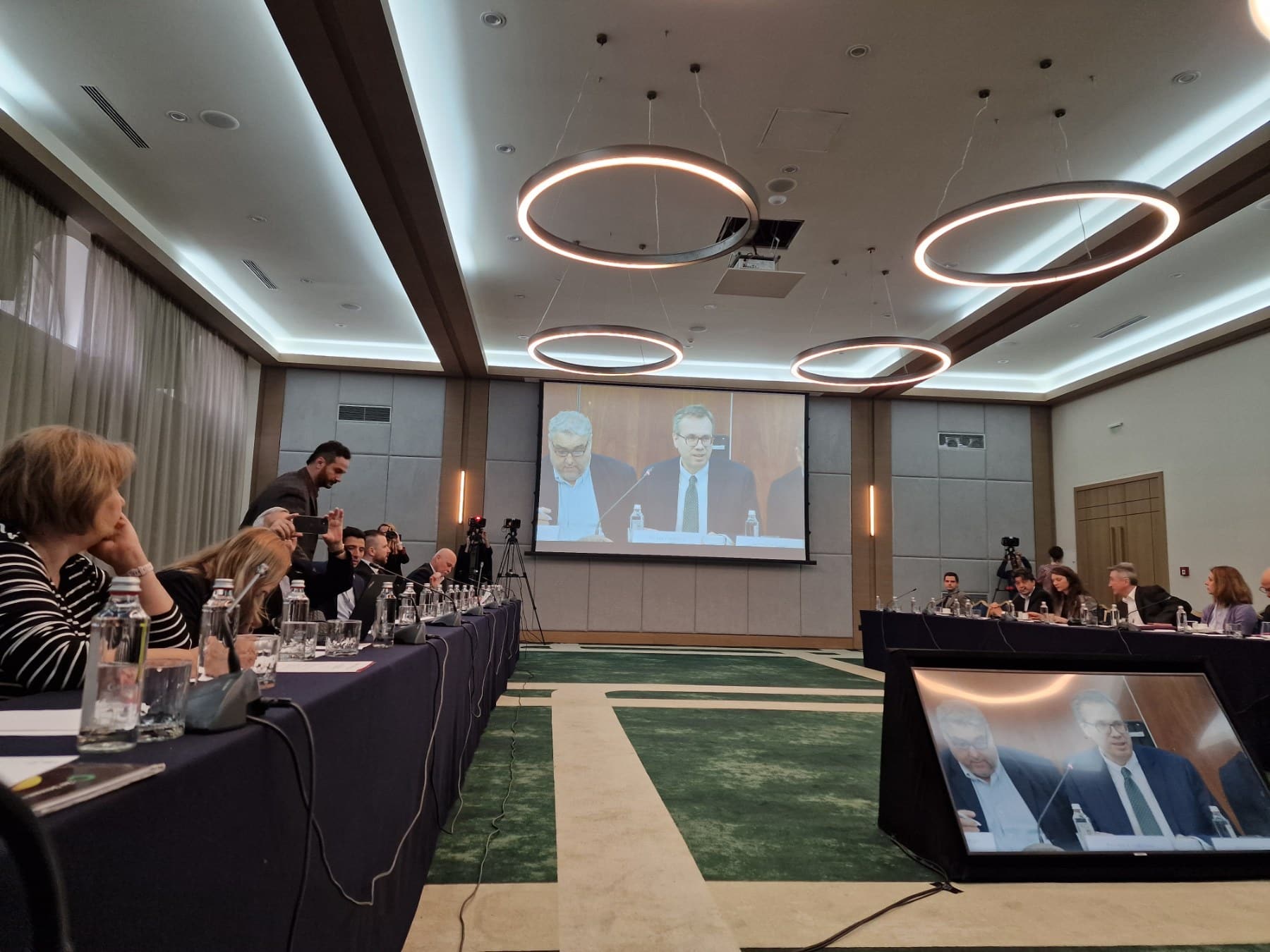Sofia. 25 April 2024
On April 25 2024, a stakeholders’ meeting was held at the Balkan Hotel in Sofia on the progress of the Integrated National Energy and Climate Plan (NECP) – right before its finalization by June 30. The meeting was jointly organized by Za Zemiata, the Center for the Study of Democracy (CSD) and the Center for Energy Efficiency “EnEfect”.
More than 40 people attended including representatives of the Ministries of Energy, Environment (with keynote speeches), Economy and Innovations, Bulgarian Energy Holding and Maritsa East Mines, think-tanks, civil sector organisations, journalists, American embassy representatives, municipalities. Interested people had the opportunity to participate in the meeting via the zoom platform, as well to watch the streaming through the facebook pages of the three organisations.
The name of the event was: “Exiting the Vicious Circle: A Long-Term Vision for Bulgaria’s Decarbonization and Economic Transformation” with the idea to present the latest analysis of the Center for the study of democracy. They modeled the assumptions and numbers from the second NECP draft and the main message was that the draft does not include what’s needed to achieve climate neutrality by 2050.

In her presentation (in Bulgarian) Radostina from Za Zemiata shared highlights from the upcoming position of Za Zemiata and Greenpeace under the second version of NECP dated 21.02.2024. She talked about the need and viability of an earlier coal exit date (2030) and fossil gas exit (2035), allowing full decarbonisation of the energy system by 2035 – based on renewables (including concrete targets on prosumers, energy communities and RES in industrial terrains) and with no need of new nuclear capacities to “balance the RES”. Phasing down energy (and fossil based) subsidies is another challenge, not really recognised by the authors of the plan, much challenging remains the decarbonisation of the transport sector and addressing transport and energy poverty.

In the second session, devoted to the energy efficiency potential, Svetoslav Stoykov, the Renovation of Buildings coordinator at Za Zemiata, moderated the discussion and again shared insights from the Za Zemiata’s position on the draft.
All the speakers united around the thesis that Bulgaria should also undertake ambitious measures to improve energy efficiency, to promote the change of citizens’ energy habits, to introduce mechanisms for effective management of energy consumption among households and businesses and democratization of electricity production as a process of inclusion of citizens in the energy system.
A day later, on the 26th April, the recommendations of the EC to the Bulgarian draft plan came out, which repeated our conclusion from the 25th – the plan is not ambitious enough to achieve the European climate goals. It is not clear how the country will achieve its slightly above its minimally required goals for RES and energy efficiency, and there is overall a lack of sufficient analysis, forecasts, measures.
In the framework of the event, The Ministry of Energy announced that, despite the political instability, they intend to hold the public discussion planned in May about a possible third version of the plan, including a Scenario with additional measures.
PREVIOUS
NEXT
